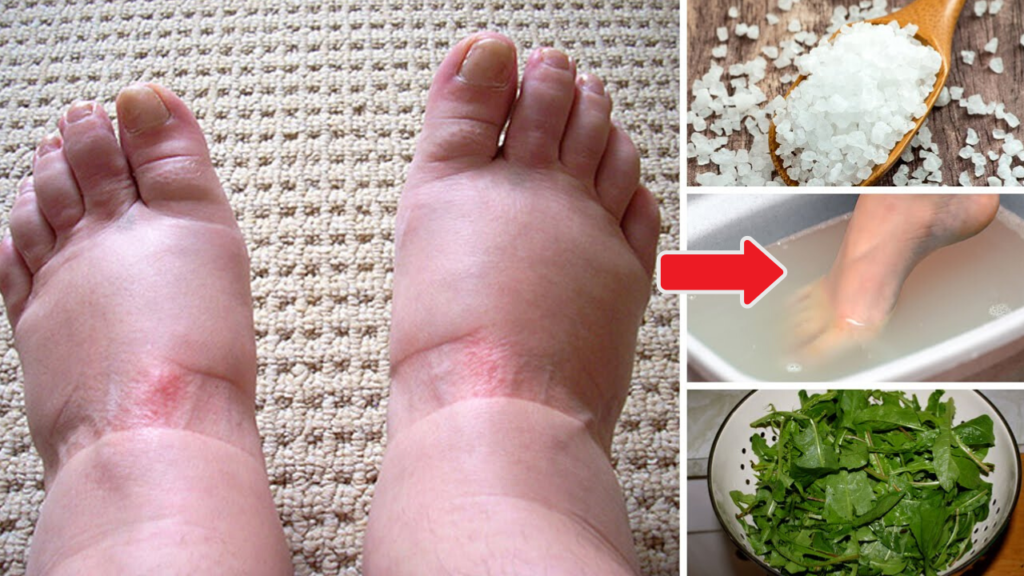Home Remedies For Swollen Feet
Swollen feet can occur as a result of pregnancy, foot/ankle injury, or edema. Edema is swelling attributed to fluid retention, which is when excess fluid is retained in the body’s organs such as tissues.
Swollen feet are unbearable and painful at times. Sometimes swelling can indicate all isn’t well with our vital organs such as kidneys, liver, and heart. Some studies have revealed that the ability to swell up from angles during the evenings results from right-sided heart failure.
There’s no need for alarm if you have swollen feet unless they’re symptoms that signify adverse health concerns. It’s normal for pregnant women to have swelling feet at some point during pregnancy, but in case of excessive swelling, it’s essential to consult a doctor for diagnosis and treatment.
However, if the swelling lasts for 2-3 days, you can use the following home remedies to reduce the severity of the condition.

Here are home remedies for swollen feet.
1. Epsom Salt
Add a substantial amount of Epsom salt to your bath. Epsom salt contains magnesium sulfate, which is known to alleviate swelling and boost circulation, purging discomfort and pain associated with swollen feet.
Although there’s no scientific study backing this, it’s worth giving it a try. Add a half cup of Epsom salt in a foot tub filled with warm or cold water for at least 10-15 minutes. Repeat this 3-5 times a week.
2. Exercise
It may seem absurd to wake up and walk around with swollen feet. Walking can help drive away excess fluid from the feet back to the heart, reducing swelling. Swollen feet are less common among people who exercise often.
The secret to avoiding swollen feet is to get up and walk around at least three times a week. If exercising is subject to extreme pain, it’s advisable to opt for lightweight exercises such as swimming, which will impact your skin positively by relieving pain and discomfort.
3. Magnesium Intake
Magnesium deficiency is one of the causes of swollen feet as it stimulates water retention. If, after diagnosis, your doctor finds out that magnesium is deficient in your body, then you can consider taking 200 to 300 mg magnesium supplement on a daily basis, but this isn’t recommended for persons with kidney or heart problems.
Besides, you can naturally boost your magnesium intake by incorporating foods abundant in magnesium into your diet, such as nuts, dark leafy greens, and many more.
4. Limit Salt Intake
Limiting salt intake can help reduce fluid retention. More fluid retention is an indication that you’re taking foods abundant in sodium. It’s important to consult with your doctor about the level of salt you should aim for.
According to the American Heart Association, taking anything above 2300 mg of sodium per day will raise your blood pressure, so the recommended amount is 1500-2300 mg to reduce blood pressure.
5. Massage
Massage is also another remedy for swollen feet as it causes the muscles to relax while at the same time enhancing circulation. Massage your feet at least two times a day without hurting them in any way while applying firm pressure.
Swollen feet though common, can cause discomfort and pain, thus the need to use home remedies to rectify the situation. However, if the swelling becomes severe, it’s important to seek medication from a doctor.
Disclaimer: The information contained in this post is for general information and for educational purposes only. Nothing contained in this post is or shall be considered, or used as a substitute for, medical advice, diagnosis, or treatment.
CHECK THESE TOO:
Natural Remedies for Sore Throat: How to Treat Sore Throat At Home

